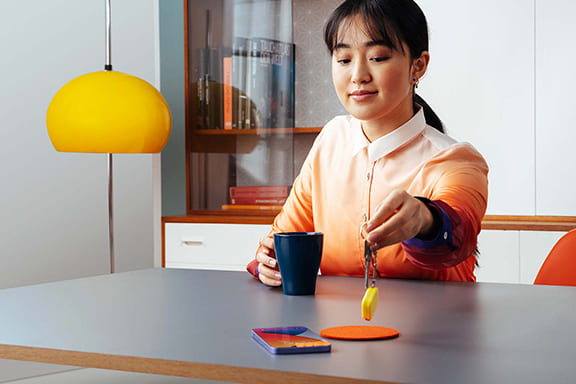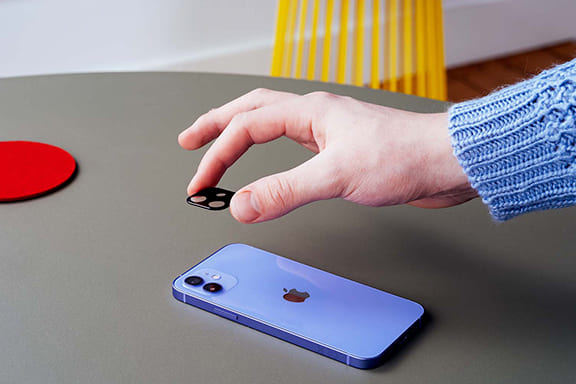iPhone 12: Protector film required?
Is Ceramic Shield on the iPhone 12 sufficient or is protector film required? We show whether and when additional screen protection is sensible.
4 min read | Nov 17, 2021
At a glance: Do you need a screen protector for the iPhone 12?
- Ceramic Shield consists of a transparent glass ceramic
- Additional screen protection is sensible
- Depending on the use, glass screen protectors or screen protector foils are suitable
- To optimally protect the iPhone 12, covers, phone cases and booklets are also recommended
- Maximum protection for the phone camera is provided by special camera lens protectors
-
What is Ceramic Shield?
Ceramic Shield is an innovative mix of materials containing ceramic, which is used as hardened screen glass on the iPhone 12. It is considered the Apple equivalent to Gorilla Glass Victus.
-
Does the iPhone 12 have a protector film?
No, the iPhone 12 is not supplied with protector film . This is why a separate protector film is necessary to best protect the displayfrom scratches. Depending on your needs, choose either a tempered glass screen protector or film . Both types offer good screen protection against scratches.
-
Does a smartphone need protector film or not?
Whether a smartphone needs a protector film depends on its use. In general, a protector film is needed to prevent annoying scratches caused by keys or small stones. Suitable covers, phone cases and booklets are ideal for protecting the whole device.
iPhone 12: Ceramic Shield display explained
Apple introduced Ceramic Shield with the iPhone 12. This is a screen glass containing transparent ceramic, which was created in collaboration with the American screen glass brand Corning. Glass ceramic has already been used for some time in the kitchen, for instance, to protect hob surfaces from scratches. However, the challenge in the development for phone screens lay in producing a transparent glass ceramic. This was achieved with Ceramic Shield in the iPhone 12. Is protector film still necessary?

Protector film required: Yes or no?
Whether Gorilla Glass or Ceramic Shield: Modern phone screens are becoming more and more hard-wearing. Slight contact with keys no longer leaves behind deep marks. So, is protector film necessary on a smartphone or not? In general, additional screen protection offers extra safety for thedisplay. This protection can make a huge difference and protect the mobile phone from far-reaching consequences in an unfortunate moment, such as a fall or accidental contact with a sharp object.
To make sure that the mobile phone is also optimally protected against damage in such exceptional cases, we consider screen protection to be essential and recommend a screen protector foil or glass screen protector. However, everyone ultimately has to decide for themselves whether they want to additionally protect their mobile phone with protector film.
Suitable screen protection for your iPhone 12
A glass screen protector or protector film?
When choosing screen protection, it depends on how you use your smartphone and what dangers you want to protect it from. While a screen protector foil protects against light scratches and is barely visible, a glass screen protector offers the best possible protection, but is visible as additional screen protection. Are you still uncertain? Then find out in our guide whether a glass screen protector or a screen protector foil is the right choice for you.

Camera lens screen protector
Even if you have also protected your mobile phone housing with a cover, a phone case or a booklet, a sensitive area on the back often remains unprotected: the main camera unit. Cracked lenses are even more annoying than simple scratches on a mobile phone, as the former instantly render the phone camera unusable. Screen protectors on the camera lens are a sensible option to protect valuable lenses.
The best possible protection is also offered here by corresponding camera glass protectors made from tempered glass. These are precisely tailored to the respective mobile phone model by the manufacturer and can be applied optimally without impairing the quality of photos and videos.





